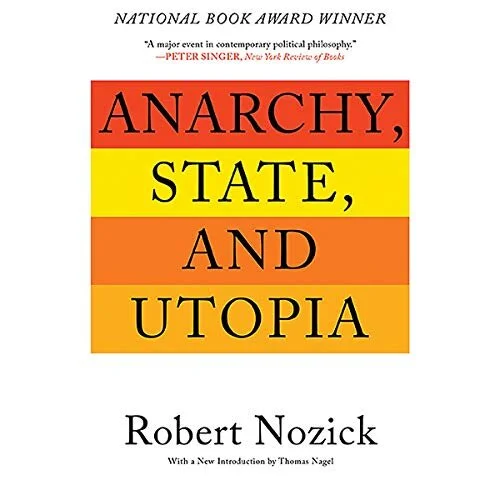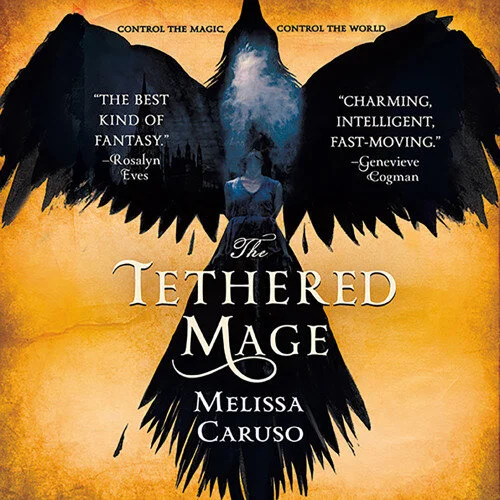Tupac, Days of Hate, Thomas Hobbes and the power of The Sovereign
You might think that the 17th century English philosopher Thomas Hobbes and the rapper Tupac Shakur have very little in common, but there are some striking similarities. They both had a gift for using language and the medium of their time to illuminate the conflicts that defined the societies they lived in. They also explored similar topics, albeit centuries apart.
Tupac’s music helped me understand a crucial concept in Hobbes’s writing. In 2002 Tupac posthumously released a song called Never Be Peace in which he says: “And I know there never be peace/That's why I keep my pistol when I walk the streets/Cause there can never be peace.” When I first heard this song, stoned out of my mind in an Amsterdam coffee shop, I thought “peace” is an odd word to use. Peace, the absence of war, is something that exists between nations. Tupac was describing a conflict between individuals in the lawless American slums where he lived.
What Tupac meant by peace is living in a place that is harmonious, a place where you don’t have to fear that the next person you meet is likely to shoot you, a place where you can pursue activities other than those focused on your personal survival. Tupac didn’t live in such a society, which is why he had to carry his pistol with him.
What is peace?
This idea of peace has little to do with conflicts between nations. During Tupac’s life no nation was realistically threatening to land troops on American shores. Hobbes also referred to peace in his writing. He wasn’t thinking of the American slums that Tupac wrote about, but he would have understood that absence of peace meant living under the constant threat of violence from other people.
The peace that Tupac says will never be possible is crucial to understanding Hobbes’s writing. Its absence is what Hobbes describes as humanity's natural state; what he called the “ceaseless war of all against all”. I don’t know if Tupac read Hobbes - he was certainly smarter than his public image would have us believe - but if he did, Tupac would have understood Hobbes’s description of the state of nature as a war of all against all. It’s what he describes in his music.
Hobbes said that life in the state of nature was “nasty, brutish, and short”. A life that is nasty, brutish and short is what Tupac describes in Never Be Peace. The end of the song mentions various violent acts that Tupac has witnessed, including children being thrown off buildings.
Life in a sci-fi dystopia
When Hobbes wrote that the state of nature was: “nasty, brutish, and short,” as well as describing the life that Tupac wrote about, he could have been describing life in almost all sci-fi dystopias. Life in Oceania in 1984, or life outside the capital in The Hunger Games, or life in The Road, or life in Mad Max may not be described as living in a state of nature (some of these societies have advanced technology), but they do show a brutalised existence, closer to the constant violence that Tupac rapped about.
These novels and films are filled with characters who are mistreated, brutalised or killed by people who have power over them. Winston Smith in 1984 is subjected to his worst nightmare in Room 101. In Terry Gilliam’s film Brazil, Sam Lowry (Jonathan Pryce) is tortured to death by Jack Linkt (Michael Palin). In Mad Max every second is a constant fight against bandits looking to murder or enslave anyone weaker than them.
Cheese-Rolling and civil war
Hobbes would have recognised something in these violent societies. He lived through the English Civil War and the 30 Years War, two incredibly violent conflicts where families, communities and countries were divided by seemingly irreconcilable disagreements over religion and government.
This very bloody period in European history informed Hobbes’s writing. David Runciman, Cambridge University politics professor, said that Hobbes thought of people as constantly in motion through life trying to stay alive in a dangerous world. Runciman has greatly studied Hobbes and much of my understanding of Hobbes comes from this accessible podcast lecture Runciman recorded.
Runciman employees the metaphor of the Cooper's Hill Cheese-Rolling and Wake to explain how Hobbes saw human life: a chaotic scramble down a steep slope, with people bumping into each other, falling down, scrambling to get back up, colliding again. We are all trying to get what we want, but due to the chaos that is life other people get in our way. This led Hobbes to the conclusion that life would be better if we collided less.
Defining peace
Hobbes said that we should seek peace, by which he meant limiting the number of collisions. I don’t know if Tupac would have thought of life as a race down a steep slope after a wheel of cheese, but he probably would have agreed that life would be better if we collided less. Maybe then he wouldn't need his pistol and we could be closer to the peace that Tupac thought was impossible for people like him.
To create peace we need an agreed definition of what peace is and someone or something that enforces this definition. This enforcement is necessary, according to Hobbes, so that we don’t resort to the violent state of nature. Your definition of peace is likely to be different to mine, so we’ll need some means of deciding on a collective vision of peace before it is enforced.
To achieve this Hobbes said that we all hand over our ability to decide on a definition of peace to one entity (a group or a person) that has the power to decide on what peace is and then to force everyone to conform to that definition. This person is the Sovereign. The Sovereign decides on what peace is, and then and forces us all to accept it. If we disagree with the Sovereign’s definition, then they use their power over everyone else to make them pull us into line.
Days of Hate
Hobbes would have also understood the nasty, brutish and short lives of the protagonists of Aleš Kot, Danijel Žeželj and Jordie Bellaire’s graphic novel Days of Hate. The novel follows characters fighting a guerrilla war against a tyrannical President in a future America riven by civil war. Violence, brutality and early deaths are common occurrences in this dark and unforgiving world.
In Days of Hate, America has become so divided between its blue and red tribes that violence is the only solution. The fight in the novel, shown through bombings and assassinations, is violent and destructive. It tears families apart and ruins lives. Hobbes would have understood this. He lived through the English Civil War and the 30 Years War.
Much of the novel takes place during the interrogation of Huian Xing who has been arrested for her role in the underground resistance. In Days of Hate the Sovereign, an unnamed tyrannical right-wing president beloved by white supremacists, has decided on what peace for this society is and Xing has rejected this. She is attempting to break away from this state, whose definition of peace is something she cannot live with. Agent Peter Freeman, the interrogator, is trying to pull her back into line.
Days of Hate is not an easy read because the process of being pulled back into line by society is painful, violent and cruel. It hurts not only the person attempting to break with the Sovereign's definition of peace, but their friends and family as well. The state has no regard for the people being pulled into line or the people around them. It simply enforces the Sovereign’s definition of peace.
Limiting the spread of politics
The state is like the Leviathan, the metaphor that Hobbes uses, a Biblical sea monster, reaching out with tentacles to roughly grab anyone who is diverting from the Sovereign's definition of peace. Hobbes thought the state, or the Leviathan, functioned better if the Sovereign was one person, although he said it could be a Parliament or a group of people. Hobbes was writing during the English Civil War and, to a degree, he was hedging his bets on whether the Sovereign could be a king or a parliament.
Hobbes believed we, everyone who is not the Sovereign, didn’t have a choice in who or what the Sovereign was. If the Sovereign can create their definition of peace then they have absolute power and no obligation to us, their subjects. Days of Hate show how dangerous a proposition this is when the Sovereign is a tyrannical white supremacist.
This system for organising the state seems far from ideal and there are many criticisms of it. The point, for Hobbes, was to limit the spread of politics. The Sovereign makes the decision about anything they want, but they cannot make a decision about everything. This means that for The Sovereign’s subjects, they are free to live most aspects of their lives as they wish. They have the Sovereign making sure that peace isn’t violated, but beyond that they are free, as politics has been safely limited to the domain of the Sovereign.
The appeal of Hobbes’s Sovereign
Writing during the English Civil War and the 30 Years War, I can see how this would be appealing. This was a time when conflict over religion and government had consumed all aspects of life and ultimately led to bloody fighting. Hobbes wanted to limit the spread of politics, as anything that politics touched in his life became a violent contest.
We might think this sounds appealing. I’m sure that many people think that politics has spread too far and touches too many aspects of our lives. Even the brands we buy are seen as indicative of our politics. Would it be good if the Sovereign made the difficult decisions over some aspects of our lives and the rest was free of politics?
Days of Hate shows the problem with this. The Sovereign in the novel has not limited the spread of politics to all aspects of some subject’s lives, crucially the subjects who don’t support him. The Sovereign has chosen to extend politics (or their decision-making power) to aspects of people’s identity that the Sovereign and his supporters find objectionable. Thus, politics is not limited for these people.
The definition of peace and identity
If you are (to use some examples of things that have been politicised in Days of Hate) from an immigrant family, Asian, or a member of the LGBTQ+ community, as Xing is in the novel, this touches every aspect of your life. So, when the Sovereign decides to make these things political, politics (and violent conflict) spread through her entire life. You cannot be LGBTQ+ or Asian or any number of other identities without it being political. Not in the USA of Days of Hate - or in the USA of our world.
The Sovereign is limiting the spread of politics for some people, but for others it’s making every aspect of their lives political. When the Sovereign decides to use his or its power against you and members of your community then it’s not a matter of whether you accept their definition of peace or not. You cannot accept their definition of peace when this peace excludes you.
The limiting power of the Sovereign has only ever been for some people and not all people. This is what Days of Hate shows. In this novel many characters cannot accept the definition of peace because it subjects them to violent repression because of their identity. Days of Hate is a work of fiction, but it’s core lesson - that the Sovereign’s power to limit the spread of politics and create a form of peace is only desirable for people who are like the Sovereign - is an important lesson for our world.










